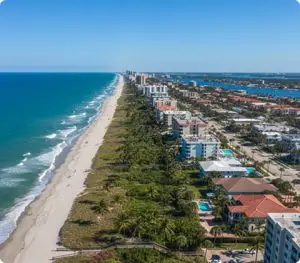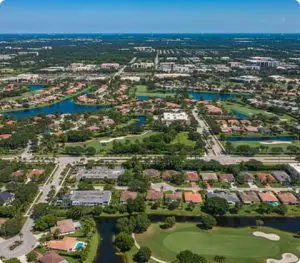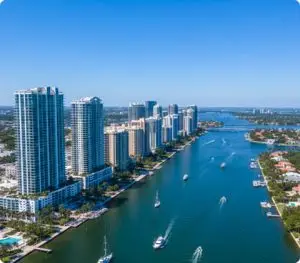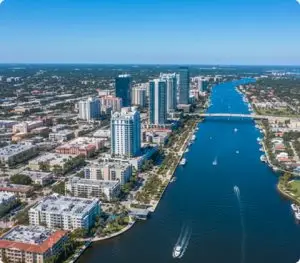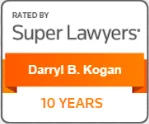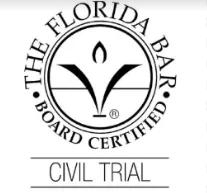Table of Contents
A slip-and-fall accident can change everything in the blink of an eye. One moment you’re walking through a grocery store, shopping mall, or apartment complex, and the next – you’re in pain, confused, and unsure what just happened. Maybe it was a freshly mopped floor with no warning sign, a broken step, or an uneven walkway no one bothered to fix. However it happened, it wasn’t your fault – and you shouldn’t have to pay the price.
At Kogan & DiSalvo Personal Injury Lawyers, we understand how frightening and overwhelming life becomes after a serious fall. We’ve worked with people who were injured due to unsafe conditions on someone else’s property.
You might feel alone, but you don’t have to be. Our Plantation accident attorneys are here to listen, support, and guide you every step of the way – from your first consultation to the final resolution of your case.
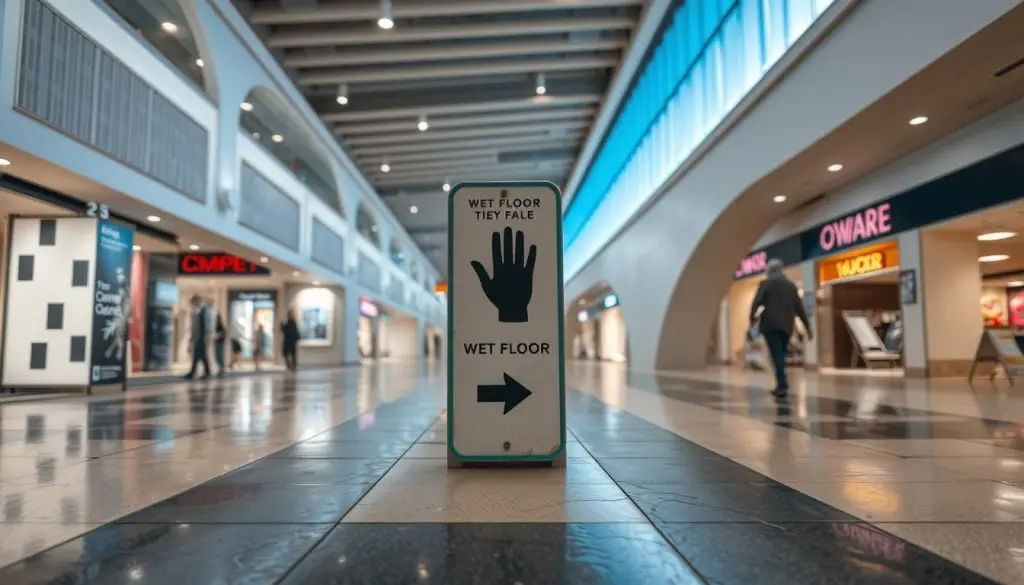
Florida Slip and Fall Laws That You Need to Know
In Florida, property owners are legally required to keep their premises reasonably safe for visitors. This includes both commercial and residential properties – everything from big box stores to apartment buildings and public sidewalks. When a property owner ignores a dangerous condition and someone gets hurt as a result, that’s a case of premises liability.
Florida statute §768.0755 specifically addresses slip and fall claims that involve a “transitory foreign substance” – for example, spilled liquid or debris on the floor. It places a duty on business owners to regularly inspect their premises and either fix hazards or clearly warn visitors about them.
To hold a property owner liable, we need to prove four things:
- A dangerous condition existed: This could be anything from a loose rug to a puddle of water to cracked pavement
- The owner knew or should have known about the hazard: Maybe he or she saw it and ignored it, or maybe it was there for hours and no one checked; either way, that person is responsible
- The owner didn’t fix it or warn you: If no sign was posted or no cleanup happened, that’s a clear failure to act
- You suffered injuries because of that hazard: This ties the accident directly to your medical bills, pain, and life disruption
Common Causes of Slip-and-Fall Accidents in Plantation
Every case is unique, but many falls happen because of preventable, everyday hazards. Let’s take a closer look at what often leads to these incidents:
- Wet floors: Spills in grocery aisles, slippery tile after mopping, and water leaks with no warning signs are some of the biggest culprits
- Uneven surfaces: Broken sidewalks, potholes in parking lots, torn carpet, and raised thresholds can easily trip someone
- Poor lighting: When stairwells or hallways aren’t well-lit, it’s hard to spot danger until it’s too late
- Missing or damaged handrails: Stairs and ramps are risky enough without proper support; lack of a handrail can turn a slip into a serious fall
- Cluttered walkways: Boxes, cords, tools, or fallen merchandise left in paths can become instant trip hazards
- Slick outdoor areas: Rain-soaked entryways, algae on pool decks, or wet leaves outside a business can all be hazardous, especially if no one takes care of them
When property owners ignore these problems and you suffer because of it, you have every right to demand accountability – and we’re here to make sure you get it.
What to Do Immediately After a Slip-and-Fall
Right after a fall, your mind may be racing. You might feel embarrassed, in pain, or unsure of what to do next. It’s important to stay calm and take key steps to protect both your health and your legal rights:
- Seek medical attention right away: Don’t wait. Go to an urgent care clinic or emergency room, even if the pain seems minor. Some injuries – like concussions or internal damage – aren’t obvious at first. Medical records will also support your case.
- Report the accident in writing: Let the property manager, landlord, or store employee know what happened. Ask him or her to make a written incident report. You can request a copy for your records.
- Take photos of the scene: Use your phone to capture everything – the hazard, the surroundings, lighting conditions, and even your clothes or injuries. These images can become key evidence.
- Keep what you were wearing: Don’t wash or throw away the clothes and shoes you had on. They might show signs of the fall, like dirt, rips, or liquid stains.
- Talk to witnesses: If any people saw your fall, ask for their names and contact information. Witness statements can back up your version of events.
- Don’t talk to insurance adjusters alone: Insurance companies may call to offer you quick cash. Beware of this tactic they use to minimize your payout. Don’t agree to anything or give a recorded statement before talking to a lawyer.
- Start a recovery journal: Write down your pain levels, missed workdays, medical visits, and how the injury affects your life. These personal details can strengthen your claim.
Proving Your Case With Powerful Evidence
When you hire Kogan & DiSalvo Personal Injury Law, we don’t just file paperwork. We go deep, gathering the kind of evidence that wins cases, including:
- Surveillance footage: We track down security videos that may have recorded the exact moment of your fall
- Maintenance and cleaning logs: These records show whether the property owner was doing his job – or cutting corners
- Expert slip testing: Engineers can test how slippery the floor was and whether it met safety standards
- Medical reports and doctor testimony: These connect your injuries to the fall and help demonstrate your need for treatment
- Vocational and economic experts: We bring in specialists who calculate how your injury affects your ability to work and earn in the future
All of this adds up to one thing: the strongest possible case, backed by facts and expert opinions – not just allegations.
Comparative Negligence in Florida: How It Impacts Your Case
Under Florida’s modified comparative negligence rule, you can still recover damages even if you’re partly to blame – as long as you’re 50 percent or less responsible for what happened.
So let’s say a jury finds you 20 percent responsible, maybe because you were distracted or wearing slippery shoes. You could still recover 80 percent of your total compensation. If the verdict is $100,000, you could receive $80,000.
Insurance companies love to use this rule to shift blame to victims, but we know how to face their methods. We counter their arguments with strong timelines, expert opinions, and a clear narrative that places responsibility where it belongs.
Serious Injuries Deserve Serious Compensation
Some falls cause bruises that fade. Others cause injuries that last a lifetime. If your accident led to any of the following, you could be entitled to significant compensation:
- Traumatic brain injury (TBI): Even a “mild” concussion can result in long-term memory loss, headaches, or personality changes
- Spinal cord damage (SCI): Falls are one of the leading causes of paralysis in adults
- Fractures and joint damage: Hip, knee, wrist, and ankle fractures can lead to chronic pain and mobility loss
- Nerve damage: You might suffer burning sensations, numbness, or a loss of function in limbs
- Internal injuries: Internal bleeding or organ damage often requires surgery and long-term monitoring
Life-care planners and medical experts can calculate the true cost of your injury – not just what you’ve paid so far, but also what you’ll need to recover in the years to come.
How Long Do You Have to File a Claim?
Florida recently passed House Bill 837, a significant change to the way personal injury cases are handled in the state. Before this law was enacted, you had up to 4 years from the date of your accident to file a lawsuit arising from a case of negligence.
However, under the new law, the statute of limitations was changed from 4 years to just 2 years. After that deadline passes, your right to seek compensation for negligence in court may be permanently lost, no matter how strong your case might be.
Although 2 years may sound like plenty of time, in reality, that window is closing quickly. Medical recovery often takes months. Evidence can disappear. Witnesses may move away or forget details, and property owners or insurers may delay communication to weaken your case.
Take the First Step Toward Physical and Financial Recovery
You didn’t choose to fall. You didn’t choose the pain, the medical bills, or the missed time with family and work. But you can decide what happens next.
Let Kogan & DiSalvo Personal Injury Law be your advocate, voice, and legal partner. From the moment you contact us, we can begin investigating, gathering documentation, and preparing your case with urgency. We understand that your focus is on healing and rebuilding, but we’ll make sure your opportunity for justice doesn’t slip away due to a technicality.
Contact Kogan & Disalvo today to schedule a free case review. We’ll listen to your story, assess your claim, and develop a tailored legal plan – so you can focus on healing while we fight for your justice.
 (800) 707-9111
(800) 707-9111
 Call
Call



